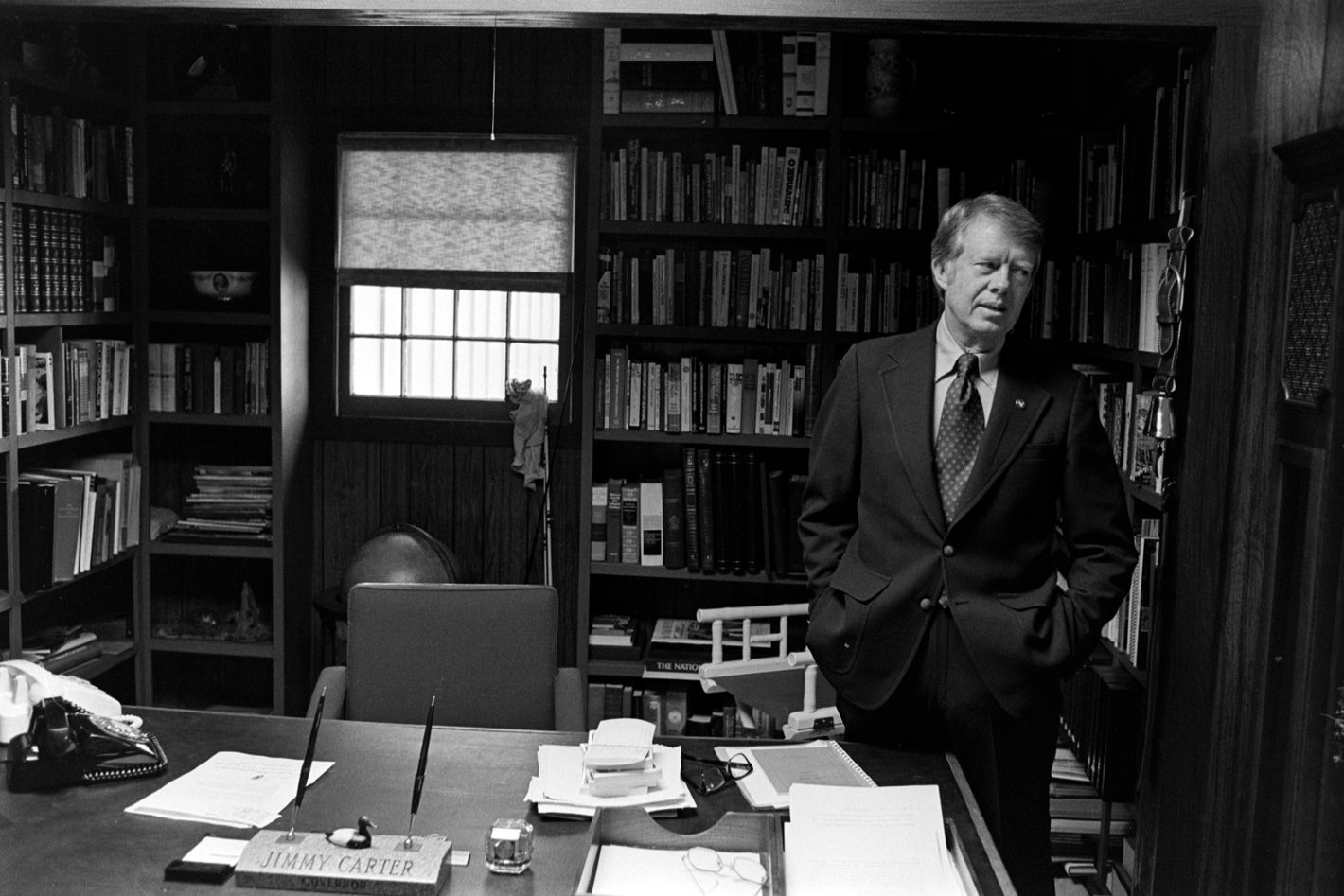Photo: Guy DeLort/Penske Media/Getty Images
There have been 14 official state funerals in Washington for presidents and ex-presidents since the first, for William Henry Harrison, was held in 1841. Until the 1930 funeral of former president (and sitting chief justice of the U.S. Supreme Court) William Howard Taft, this particular honor was reserved for presidents who died in office. The upcoming January 9 memorial in Washington for the 39th president, Jimmy Carter, will be the fourth presidential state funeral of the 21st century, but the first ever to coincide with the transition of power from one president to another.
Though President-elect Donald Trump regularly mocked Carter as a failed chief executive, his reaction to his predecessor’s death was surprisingly gracious, and he quickly indicated that he would attend the funeral. And as Joe Biden first revealed back in March 2023, Carter asked him to deliver a eulogy. So potentially, this state funeral will mark President Biden’s last big moment in the spotlight and a bit of a prequel to the second Trump inauguration. While Trump skipped Biden’s swearing-in in 2021, Biden will be present on January 20 to formally relinquish the office to his bitter rival.
Perhaps it will be a moment of transition soon to be forgotten, but there are a number of symbolic implications that might be drawn from this crossing of diverging paths. This will be the first state funeral for a Democratic president since the one in 1973 for Lyndon Johnson, another Oval Office occupant who, like Biden, was pressured into withdrawing from a reelection bid. Could the 2024 election, like that of 1968, represent the beginning of an extended period of Republican domination of presidential elections? (The first was interrupted, as it happens, by Jimmy Carter’s one term in the White House.)
We can’t know that for a while, but we can likely rule out another possibility: that Trump and Biden will use the occasion of the ceremony honoring Carter to bury recent partisan grudges. They could probably both find something nice to say about Carter without offering much of an olive branch to their contemporary political foes. For Trump, Carter was an outsider who tried to shake up the federal government and his own party, while Biden (who actually supported Carter’s 1976 presidential bid as a freshman U.S. senator) can rightly view himself as a fellow centrist Democrat who was nonetheless a fierce partisan warrior. But Biden will have the unique opportunity to stand behind the pulpit of the National Cathedral and pay tribute to his predecessor in a way that adds a punctuation mark to his own one-term presidency.
One thing both Biden and Trump (and, for that matter, the other living ex-presidents, Bill Clinton, George W. Bush, and Barack Obama) can agree on is to hope that they will enjoy a post-presidency that competes with Carter’s in length, distinction, and the approbation of his fellow citizens. The 39th president certainly left this world more appreciated — and loved — than he was when he left the White House.

